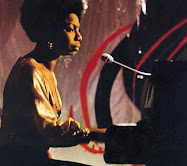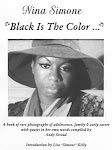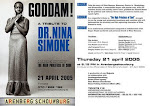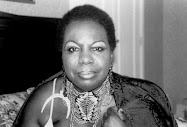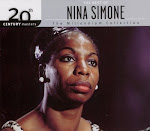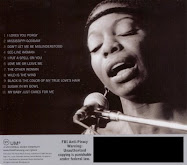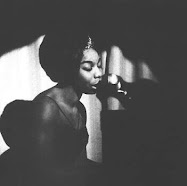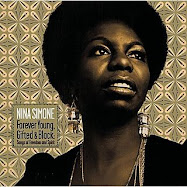Violinist Regina Carter is a highly original soloist whose sophisticated technique and rich, lush tone took the jazz world by pleasant surprise when she arrived in New York from her native Detroit. And jazz fans weren't the only people who heard that mercurial quality in her playing: artists as diverse as Faith Evans, Elliot Sharp, and Mary J. Blige have employed her talents on their recordings, as has filmmaker Ken Burns on his soundtrack for The Civil War. Add this to an extremely long list of jazzers who include Tom Harrell, Wynton Marsalis, and Oliver Lake.
Regina Carter Jazz Violin Playlist
Regina Carter (born August 6, 1966) is the cousin of famous jazz saxophonist James Carter.She was born in Detroit and was one of three children in her family. She began piano lessons at the age of two after playing a melody by ear for her brother's piano teacher. After she deliberately played the wrong ending note at a concert, the piano teacher suggested she take up the violin. She suggested that the Suzuki Method was more conducive to her creativity. Carter's mother enrolled her at the Detroit Community Music School when she was four years old and she began studying the violin. She still studied the piano, as well as tap and ballet.
As a teenager, she played in the youth division of the Detroit Symphony Orchestra. While at school, she was able to take master classes from Itzhak Perlman and Yehudi Menuhin.
Carter attended Cass Technical High School with a close friend, jazz singer Carla Cook, who introduced her to Ella Fitzgerald. In high school, Carter performed with the Detroit Civic Orchestra and played in a pop-funk group named Brainstorm. In addition to taking violin lessons, she also took viola, oboe, and choir lessons.
Carter was studying classical violin at the New England Conservatory of Music in Boston when she decided to switch to jazz, but the school did not have that as a program. She transferred to Oakland University in Rochester, Michigan. Here she studied jazz with Marcus Belgrave. Through Belgrave Carter was able to meet a lot of people active in the Detroit jazz scene, including Lyman Woodard. She graduated in 1985. After graduating, she taught strings in Detroit public schools. Needing a change of scene, she moved to Europe and spent two years in Germany. While making connections, she worked as a nanny for a German family and taught violin on a U.S. military base.
Regina Carter returned to Michigan to join the all-female jazz quartet Straight Ahead. After two recordings for the Atlantic label, Carter left the band in 1994 in search of a solo career. She had already been doing session work in the city and sought to make the move permanent. Carter found herself working with Max Roach, the String Trio of New York, and the Uptown String Quartet before recording her self-titled debut recording on Atlantic in 1995. Its mixture of R&B, pop, and jazz confused jazz fans and delighted pop critics. It sold well enough for her to record Something for Grace, which leaned in a jazz direction though it featured an R&B sheen in its production. Carter left Atlantic for Verve in 1998 and recorded two more outings under her own name, the last of which, Motor City Moments, is her finest session. In 2001, Carter recorded a duet session with Kenny Barron that has been universally acclaimed for its lyrical qualities and stunning range of dynamics and harmonic invention.
She has since released the classically influenced Paganini: After a Dream in 2003 and the American songbook album I'll Be Seeing You: A Sentimental Journey in 2006 as a tribute to her late mother.
She won a MacArthur Foundation Fellowship in September of that year. After much time spent touring and a sojourn in Africa, Carter emerged with Reverse Thread in 2010 on the E1 imprint. The album is comprised mainly of African folk tunes from countries as diverse as Mali, Uganda, and Senegal among others. Her sidemen on this recording include accordionists Will Holshouser and Gary Versace, guitarist Adam Rogers, acoustic bassist Chris Lightcap, electric bassist Mamadou Ba, kora master Yocouba Sissoko, and drummer Alvester Garnett. Using many of the same musicians, Carter furthered her exploration of earlier musics on Southern Comfort, which explored in detail as well as in concept the roots of American music. It was released in March of 2014.
Regina Carter Interview
Atlanta Jazz Festival Regina Carter Special class HD
Interview with Regina Carter at the Jackie Robinson Foundation Afternoon of Jazz 1996







































